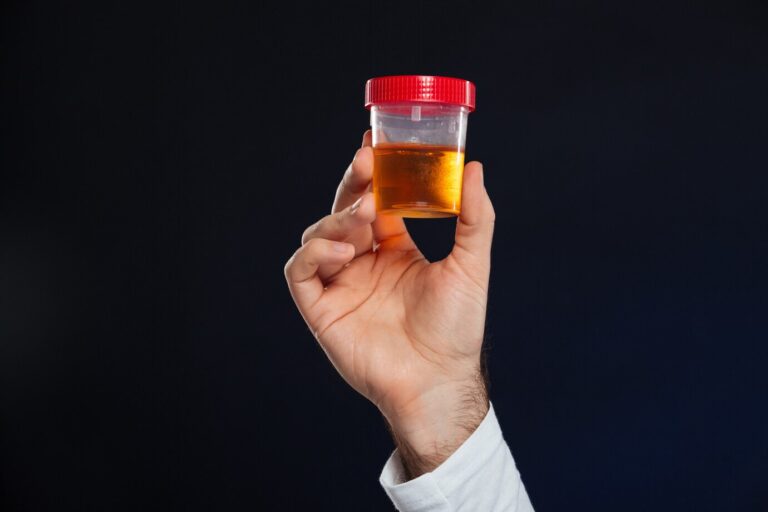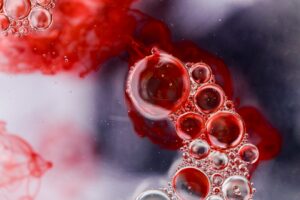Detecting alcohol in urine is essential to assess recent consumption as it can typically be detected for up to 24 to 48 hours post-last drink, influenced by factors like age, weight, and health status. While hydration can be helpful, it does not significantly speed up the elimination process. Understanding how these variables impact “alcohol detection in urine” is crucial for effective health management and compliance.
How long does alcohol stay in your urine
Alcohol can be detected in your urine for up to 24 to 48 hours after your last drink. This timeframe can vary based on factors like age, weight, and overall health. Drinking water and staying hydrated may help, but it won’t speed up the process significantly.
Alcohol breaks down at a fixed rate, so only time can lower its levels in your system. It’s important to remember that even small amounts of alcohol can be detected in tests during this period. If you have any concerns, consider speaking with a healthcare professional.
How alcohol is detected in urine
An alcohol urine test is a common method to detect alcohol consumption. This test identifies the presence of alcohol metabolites in the urine. These metabolites can be detected for up to 80 hours after drinking. It’s a reliable way to determine recent alcohol intake. The alcohol urine test is often used in various settings, including workplaces and healthcare facilities.
Types of urine tests and results
There are several types of urine tests used to detect alcohol. Here are main urine tests used in detection of alcohol in pee.
1: Ethyl Glucuronide (EtG) Test
The Ethyl Glucuronide (EtG) test detects EtG, a direct metabolite of alcohol. This test is highly sensitive and can show alcohol consumption up to 80 hours after intake. Due to its sensitivity, it is often used in various settings to reliably determine recent alcohol use. The EtG test is a preferred choice for monitoring abstinence in individuals undergoing alcohol treatment programs or for workplace testing.
2: Ethyl Sulfate (EtS) Test
The Ethyl Sulfate (EtS) test is similar to the EtG test and detects EtS, another metabolite of alcohol. Like the EtG test, it can indicate alcohol use within the same 80-hour timeframe. The EtS test is often used in conjunction with the EtG test to provide more accurate results. This combination helps in confirming recent alcohol consumption and is particularly useful in clinical and forensic settings.
3: Standard Urine Test
The Standard Urine Test is less sensitive compared to the EtG and EtS tests. It typically detects alcohol within 12-24 hours after drinking. This test measures the actual alcohol content in the urine rather than its metabolites. While it is commonly used, it is not as reliable for detecting alcohol use beyond 24 hours. This test is often used for immediate detection of alcohol consumption in situations such as roadside testing or workplace incidents.
Follow the Steps to get accurate urine test
To ensure accurate results from an alcohol urine test, follow these steps:
- Avoid Alcohol: Do not consume alcohol at least 48-80 hours before the test.
- Hydrate Well: Drink plenty of water to keep your body hydrated.
- Follow Instructions: Adhere strictly to any guidelines given by the testing facility.
- Provide a Clean Sample: Ensure the urine sample is collected in a clean, sterile container.
- Inform About Medications: Tell the tester about any medications or supplements you are taking, as some can affect the results.
How long does it take alcohol to leave your system
Alcohol typically stays in your system for about 24 to 48 hours. This time frame can vary based on several factors like your age, weight, and metabolism. The liver processes about one standard drink per hour, so if you’ve had multiple drinks, it will take several hours for your body to clear the alcohol completely.
Hydration can help speed up the process, but it won’t eliminate alcohol instantly. Other factors like gender, overall health, and the amount of food consumed can also affect how quickly alcohol leaves your system.
For more precise results, alcohol can be detected in urine for up to 80 hours and in hair for up to 90 days. Remember, everyone’s body processes alcohol differently, so these times can vary.
How to kick alcohol out of your body
Eliminating alcohol from your body requires a thoughtful and guided approach. Here are some key strategies and tips to effectively aid in the removal of alcohol from your system.
Hydrate Yourself
Drinking plenty of water is essential. Water helps flush out toxins from your body, including alcohol. Aim to drink at least 8-10 glasses of water daily. Hydration supports your liver and kidneys in processing and eliminating alcohol.
Eat Nutritious Foods
Eating a balanced diet can aid in detoxification. Include foods rich in vitamins and minerals, such as fruits, vegetables, lean proteins, and whole grains. Foods high in antioxidants, like berries and leafy greens, can help repair any damage caused by alcohol.
Get Enough Sleep
Proper rest is crucial for your body to recover. Aim for 7-9 hours of sleep per night. Sleep helps your body repair itself and can speed up the detox process.
Exercise Regularly
Physical activity boosts your metabolism and helps your body expel alcohol faster. Even light exercises, like walking or yoga, can make a difference. Aim for at least 30 minutes of exercise most days of the week.
Avoid Caffeine and Sugary Drinks
While it might be tempting to reach for coffee or sugary drinks, these can dehydrate you and make it harder for your body to flush out alcohol. Stick to water and herbal teas.
Take Detox Supplements
Some supplements can support liver function and detoxification. Milk thistle, for example, is known for its liver-protecting properties. Always consult with a healthcare provider before starting any new supplement.
Seek Professional Help
If you’re struggling to quit alcohol, seeking professional help can be beneficial. A healthcare provider can offer medical advice and support tailored to your needs. Therapy and support groups can also provide the emotional and psychological help you may need.
Practice Mindfulness and Stress Management
Reducing stress can help you resist the urge to drink and support your overall health. Practices like meditation, deep breathing, and mindfulness can be very effective.
Stay Socially Active
Engage in social activities that do not involve alcohol. Surround yourself with supportive friends and family who understand your goal to stay sober.
How long can alcohol stay in your system
Alcohol can stay in your system for different amounts of time depending on several conditions. Here are the main factors that affect how long alcohol remains detectable:
- Amount Consumed
- The more alcohol you drink, the longer it takes for your body to process it.
- Metabolism
- Everyone’s metabolism is different. Some people process alcohol faster than others.
- Age
- Younger people tend to metabolize alcohol faster than older people.
- Body Weight
- A person with higher body weight may process alcohol differently compared to someone with lower body weight.
- Food Intake
- Drinking on an empty stomach leads to faster absorption of alcohol into your bloodstream.
- Hydration Levels
- Staying hydrated can help your body process alcohol more efficiently.
- Gender
- Women generally process alcohol slower than men due to differences in body composition.
- Medications
- Certain medications can affect how your body processes alcohol, either slowing it down or speeding it up.
Understanding these conditions can help you estimate how long alcohol might stay in your system. However, it’s always best to be cautious and allow enough time for your body to fully metabolize the alcohol before engaging in activities that require full alertness and coordination.
How long does alcohol stay in blood
Alcohol can stay in your blood for several hours after you stop drinking. The exact duration depends on various factors, such as how much you drank, your body weight, and your metabolism. Generally, alcohol is metabolized at a rate of about one drink per hour. However, this can vary from person to person.
Blood Tests to Detect Alcohol
Blood tests are one of the most accurate methods for detecting alcohol in your system. Here’s how the process works:
A healthcare professional will draw a small amount of blood from a vein in your arm using a needle. This is typically done at a clinic or hospital.
The blood sample is sent to a laboratory where it is analyzed. The lab uses a process called gas chromatography to measure the Blood Alcohol Concentration (BAC). This test determines the percentage of alcohol in your blood.
The results of the blood test will show your BAC level. A BAC of 0.08% or higher is considered legally impaired in many places. However, even lower levels can affect your ability to perform certain tasks. The test can detect alcohol in your blood for up to 12 hours after your last drink, depending on various factors.
Tips to Get Accurate Results:
- Do not drink any alcohol for at least 12 hours before the test.
- Follow any specific instructions given by the healthcare provider.
- Drink plenty of water, as dehydration can affect the results.
- Eating regular meals can help your body process alcohol more efficiently.
- Inform the healthcare provider about any medications or supplements you are taking.
How long does alcohol last
Understanding how long alcohol stays in your system is crucial for various reasons. Whether you’re concerned about its effects on your body or need to know for medical or legal reasons, knowing the details can help.
Alcohol Half-Life
The concept of alcohol half-life is essential here. The half-life of alcohol is the time it takes for your body to eliminate half of the alcohol present in your system. On average, the half-life of alcohol is about 4-5 hours. This means that after 4-5 hours, half of the alcohol you consumed will be processed and eliminated by your body.
Factors Affecting Alcohol Metabolism
Several factors influence how long alcohol stays in your system, including:
- Body Weight: Heavier individuals tend to metabolize alcohol faster.
- Age: Older people process alcohol more slowly.
- Gender: Women generally metabolize alcohol slower than men.
- Food Intake: Drinking on an empty stomach increases the absorption rate of alcohol.
- Liver Function: Healthy liver function speeds up alcohol metabolism.
Detection Times
Alcohol can be detected in your system for different durations depending on the type of test:
- Breath: Alcohol can be detected in your breath for up to 24 hours.
- Blood: Alcohol is detectable in your blood for about 12 hours.
- Urine: Alcohol can be detected in urine for up to 48 hours. In some cases, it can be longer if you’re a heavy drinker.
- Hair: Alcohol can be detected in hair for up to 90 days.
Does alcohol show up on a drug test
Yes, alcohol can show up on a drug test. Urine tests are the most common way to detect alcohol. They can find alcohol in your system for up to 24 to 48 hours after drinking. Blood tests can detect alcohol for about 12 hours, while breath tests are usually used for immediate results. Hair tests can show alcohol use for up to 90 days, but they are less common. It’s important to note that different tests have varying detection windows. Knowing these can help you understand how long alcohol stays in your system. Always drink responsibly and be aware of the potential impacts on drug testing.
Can you pass a alcohol test in 24 hours
Passing an alcohol test in 24 hours can be challenging. Alcohol detection times vary depending on the type of test. For a urine test, alcohol can be detected for up to 48 hours after consumption. For breath and blood tests, alcohol might still be present for up to 24 hours, depending on how much you drank and your body’s metabolism. Drinking water, eating food, and getting rest can help your body process alcohol faster, but there’s no guaranteed way to pass an alcohol test within 24 hours. Always drink responsibly and be aware of the risks.
Summary
Alcohol detection in urine relies on various tests, with the most common being the Ethyl Glucuronide (EtG) and Ethyl Sulfate (EtS) tests. These can detect alcohol metabolites up to 80 hours after consumption, making them highly sensitive and reliable for monitoring recent alcohol use.
Standard urine tests, though less sensitive, can detect alcohol within 12-24 hours. To ensure accurate results, one should avoid alcohol 48-80 hours before the test, stay hydrated, and follow all testing guidelines. Understanding these aspects helps in better managing health and complying with testing requirements in various settings like workplaces and healthcare facilities.







